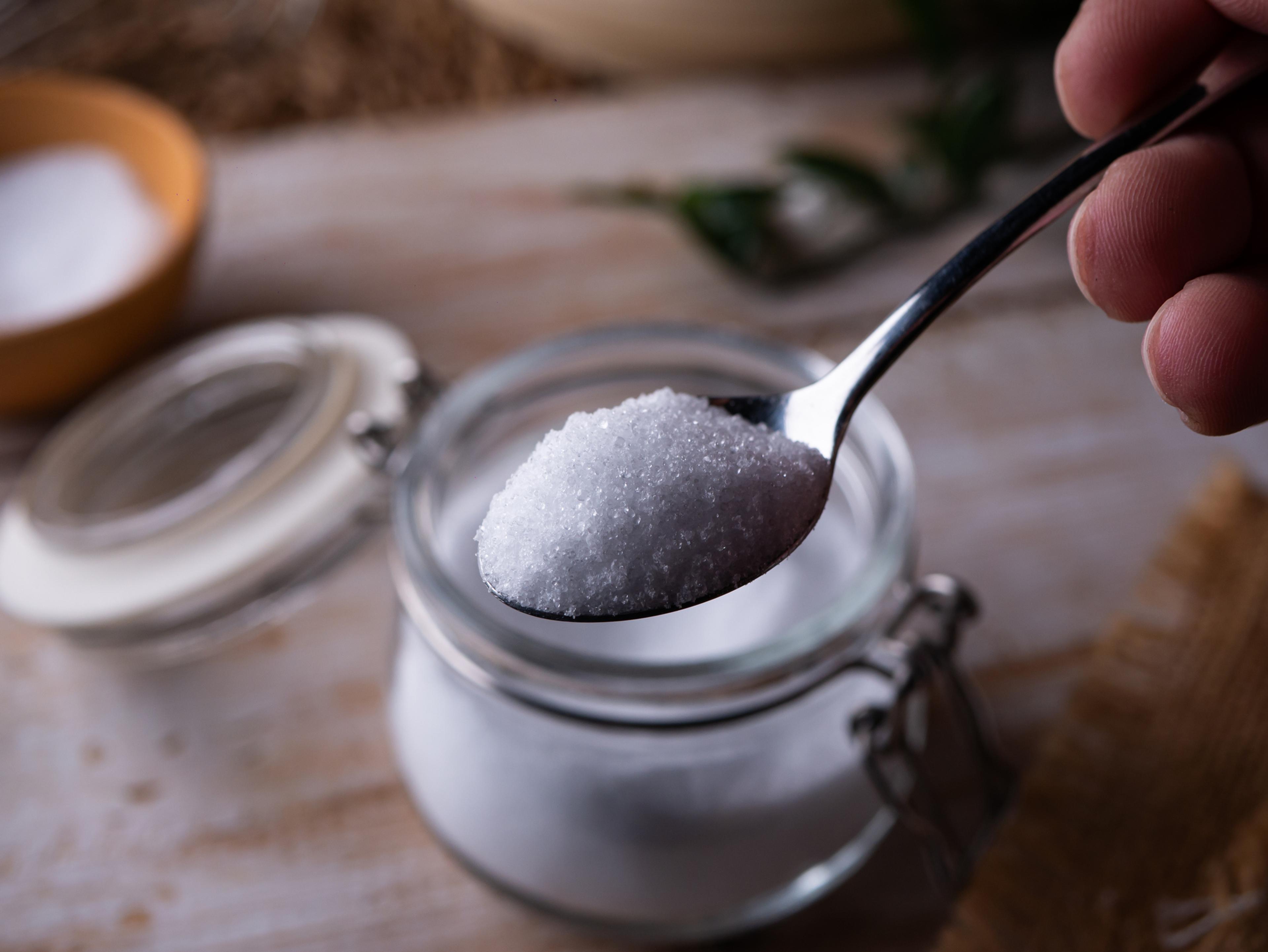Why You May Want to Skip This Common Sugar Alternative

Lindsay Knake
| 3 min read

Artificial sweeteners have grown in popularity as concerns about added sugar, obesity and Type 2 diabetes have risen. More than half of American children and adults consume more than the daily recommended amounts of added sugar.
But a common artificial sweetener called erythritol is associated with a variety of negative health effects, according to multiple studies. Here is a look at the non-nutritive sweetener, the health effects and how to navigate food packaging.
Health effects of erythritol
Erythritol is a type of sugar alcohol, typically made by fermenting corn. It’s low in calories, nearly as sweet as sugar and tastes more like sugar than other artificial sweeteners, according to the Cleveland Clinic. This artificial sweetener, along with others, can appear in “diet” and sugar-free products such as ice cream, candy, baked goods and energy drinks. Erythritol has been on the market in the United States since 2001.
While the human body makes erythritol in very small amounts, the commercial version of erythritol is highly concentrated and linked to adverse health effects.
In a 2023 study of 4,000 people in the United States and Europe, participants who had more erythritol in their blood were more likely to have a fatal heart attack or stroke within three years.
Consuming non-nutritive sweeteners for a long period of time may increase the risk of Type 2 diabetes and cardiovascular disease, according to the World Health Organization.
A new study, published in the Journal of Applied Physiology, looked at the effect of a commercial serving of erythritol on brain cells. This test tube study found the non-nutritive sweetener increased damaged cells that carry blood through the brain and increased oxidative stress, which means the body has too many free radicals and too few antioxidants. Excess free radicals cause cell damage and are associated with a higher risk of cancer, cardiovascular disease, neurological disease and kidney disease. Researchers in the test tube study said more research is needed, but there may be a link between erythritol and increased risk of stroke.
What’s more, artificial sweeteners like erythritol can increase your craving for sweetness and make you want to eat or drink more.
How to identify sugar alcohol in foods
The U.S. Food and Drug Administration (FDA) doesn’t require companies list erythritol on all food packaging unless the label makes a statement about the health effects of sugar alcohols. This can make it difficult to find. It can be in products with labels such as:
- No or low sugar
- Artificially or naturally sweetened
- Keto-friendly
- No or low calories
If you want to reduce the number of artificial sweeteners in your diet, focus on:
- Eating whole fruits and vegetables, lean meats, whole grains and legumes.
- Drink plenty of water.
- Limit low or no sugar foods and artificial sweeteners.
- Limit ultra-processed foods.
Choose fresh fruit as a sweet treat rather than artificially sweetened products. While it’s fun to enjoy an occasional sweet treat with added sugar, aim to keep your added sugar intake to no more than 10% of your daily calories.
Talk to your primary care physician if you have high blood sugar levels, prediabetes or diabetes about a healthy diet and lifestyle habits.
Image: Getty Images
Related:





